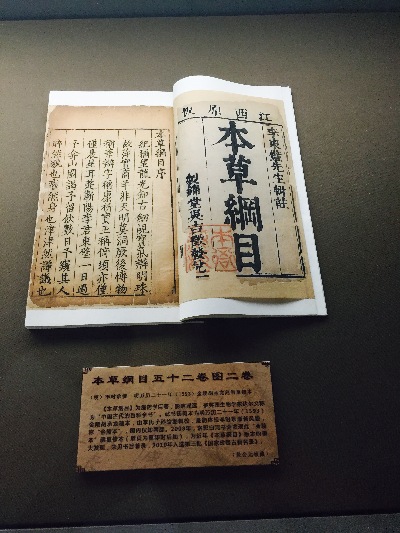News
Ancient-book collections' private story
Updated: 2015-07-14By Liu Zhihua ( China Daily )
 |
|
A rare edition of Bencao Gangmu, a Ming Dynasty (1368-1644) medicinal classic, is a highlight at the ongoing show at the National Museum of Classic Books. Liu Zhihua / For China Daily |
While public libraries' role in ancient-book preservation is thoroughly documented, an ongoing exhibition chronicles a less-known chapter written by private collectors.
The display of 115 books from China and abroad, belonging to 30 private collections, at the National Museum of Classic Books is said to be the most comprehensive of its kind to date.
Exhibits at the museum, affiliated with the National Library of China, include some of the oldest and best-preserved books and manuscripts discovered.
Wei Li, one of the book owners, says: "This is the largest exhibition of rare, ancient books not owned by the government since 1949. The quantity, quality and span of time is incredible."
The writings deal with various dimensions of ancient China, such as philosophy, literature, history, medicine, geomancy and religion.
They reveal a variety of binding styles-rolled, folded and linear.
The exhibition includes a reprint of the first version of Bencao Gangmu, or Compendium of Materia Medica, by traditional Chinese medicine expert Li Shizhen (1518-93). Experts claim it's one of the Ming Dynasty (1368-1644) classic's most complete versions. (The time of its publication hasn't been verified.)
Another highlight is a collection of Song Dynasty (960-1279) poet Su Shi's prose. The book by one of China's most celebrated poets survived wars and a fire-except for the cover.
There are also two manuscripts from Gansu province's Dunhuang that are more than 1.4 meters long. Most manuscripts from the ancient Silk Road oasis are 30 to 50 centimeters, says curator Chen Hongyan, who's also the National Museum of Classic Books' deputy director.
Only six Dunhuang manuscripts of such length have been discovered. Three are in a British museum, she says.
Chinese Academy of Social Sciences' Western Xia (1038-1227) culture research center director Shi Jinbo highlights a dictionary printed during the ethnic Tangut kingdom in northwestern China.
It's one of the few records of the kingdom's language's pronunciations and meanings, Shi says.
Shi says the entire exhibition defines private ancient-book collections' unsung value.
If you go
9 am-4:30 pm, through Aug 10. 33 Zhgngguancun South Street, Haidian district, Beijing.
010-8854-5426.
Related:
One day of an ancient book restorer
Exhibition of Dunhuang art design held in Guangdong


